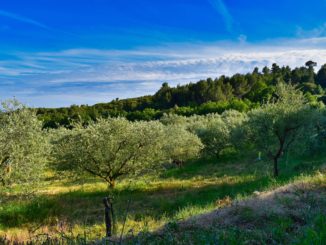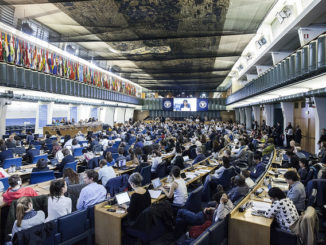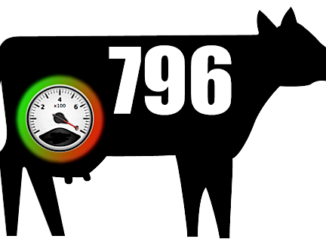France

A European expert was appointed Minister of Agriculture and Agri-Food on May 16th. Very close to new President Francois Hollande, Stéphane Le Foll was his chief of cabinet at the Socialist Party (PS) from 1997 to 2008. During the PS presidential primary in 2011, he was his campaign director before becoming responsible for organising the campaign for the presidential election.
Elected in the city of Le Mans in 2001, Stéphane Le Foll had replaced former MEP Georges Garot on the PS list and has been elected as an MEP in 2004. He took his seat in the Committee on Agriculture and Rural Development for the S&D party. In 2010, he was the rapporteur of a report on agriculture and climate change.
A specialist in agricultural issues in Brussels
Stéphane Le Foll has already passed through the Rue de Varenne. With a degree in economics, he was technical advisor to former minister Louis Le Pensec, in 1997. Surrounded by researchers and rural experts, he creates with Edgard Pisani a think tank on agricultural policies, the Groupe Saint Germain, with the ambition to rethink the agricultural project. Stéphane Le Foll is also a fellow of Controversies in Marciac, South of France.
It is the personality from the PS who knows the most agricultural issues at European level. It’s basically a “normal” choice regarding the future EU negotiations on CAP reform and the budget planned for late 2012 early 2013. Multi-NGOs Groupe PAC 2013 had interviewed Stéphane Le Foll during the presidential campaign, to hear his views on CAP reform.
Expanding its portfolio to the food industry is a signal sent to the FNSEA’s request for a broader scope that goes from upstream to downstream food chain. A choice that now overshadows the Food and Rural dimensions in this new government set by prime minister Mr Ayrault.
Romania

As of May 8th Romania has a new Minister of Agriculture and Rural Development: Daniel Constantin. The former government fell in mid April due to a no confidence motion in the Parliament that the Opposition (formed by a coalition of three political parties) supported. The new minister is the president of one of the three parties (the smallest party of the three called The Conservator Party).
Daniel Constantin is a trained engineer in animal sciences, in 2009 he led the Payment and Interventions in Agriculture Agency (the one that deals with direct payments in Romania).
He has announced that his priority is the absorption of European funds. Due to a risk of disengagement, Romania being obliged to spend over 6 billion Euros of which 2.5 billion are at the Ministry of Agriculture: 1.1 billion Euros through the Payments and Interventions in Agriculture Agency and 1.4 billion Euros through the Payments for Rural Development and Fisheries Agency.
Another objective for the new minister is to complete the negotiations for the 2014-2020 National Rural Development Programme. For this programme, together with specialists from Romania and from the European Commission, the Ministry of Agriculture and Rural Development wishes to define a new concept for developing the Romanian countryside. The minister declared:
“In recent years, a lot of money has been invested in the infrastructure of Romanian rural areas – roads, gas, water and sewage. Unfortunately, the rural inhabitants cannot afford to use these services. I believe that we need to take care of the socio-economic development of the Romanian village and afterwards we will develop the other activities in the rural areas.“
An additional element of the new minister’s mandate will be the irrigation sector. During discussions with Leonard Orban (Romanian Minister of European Affairs) and Dacian Ciolos (European Commissioner for Agriculture and Rural Development), Minister Constantin highlighted the importance of identifying the necessary funds for creating a special programme for the irrigation of state-owned infrastructure. At present neither FEGA or EARDF has provisioned funds for systems under state ownership – this is more than 90% of the entire Romanian irrigation system.




